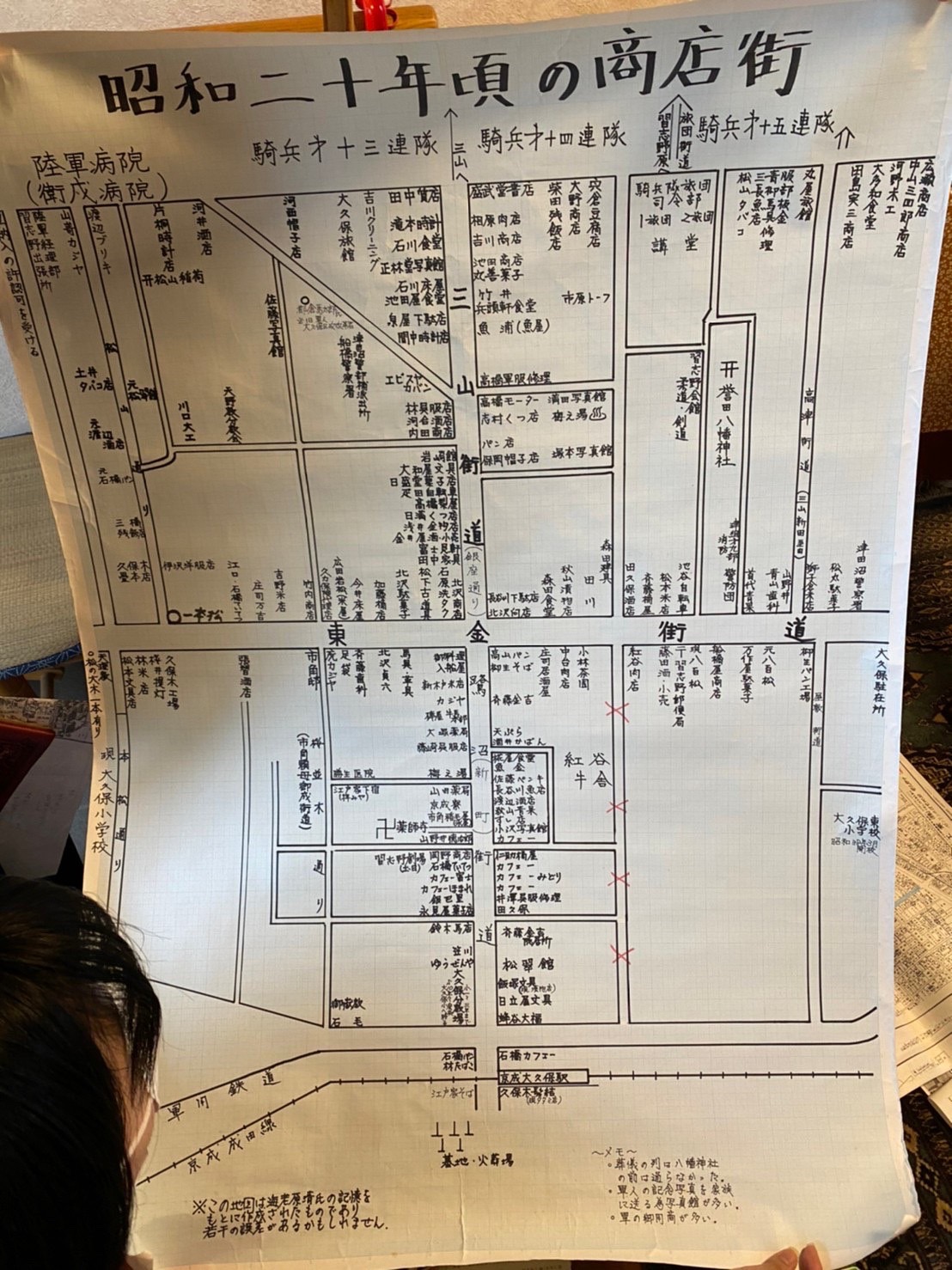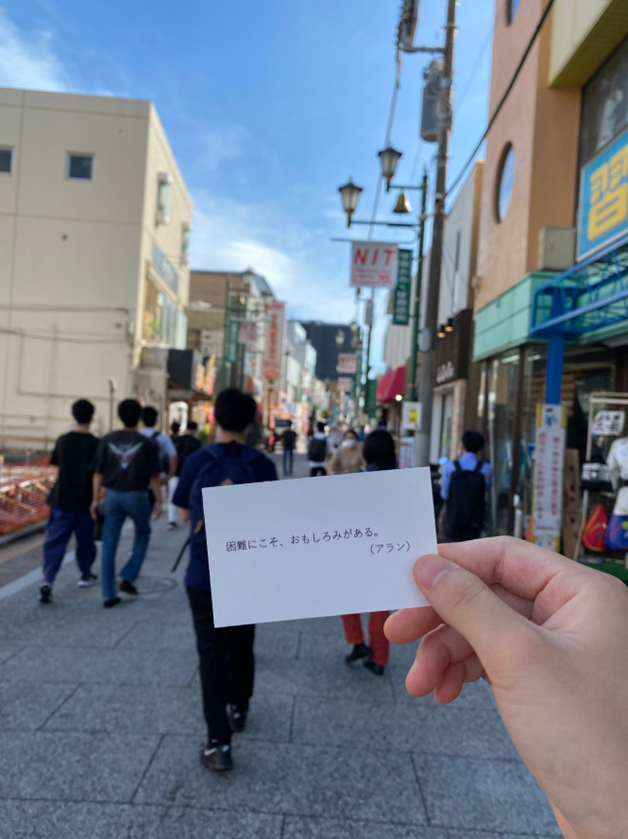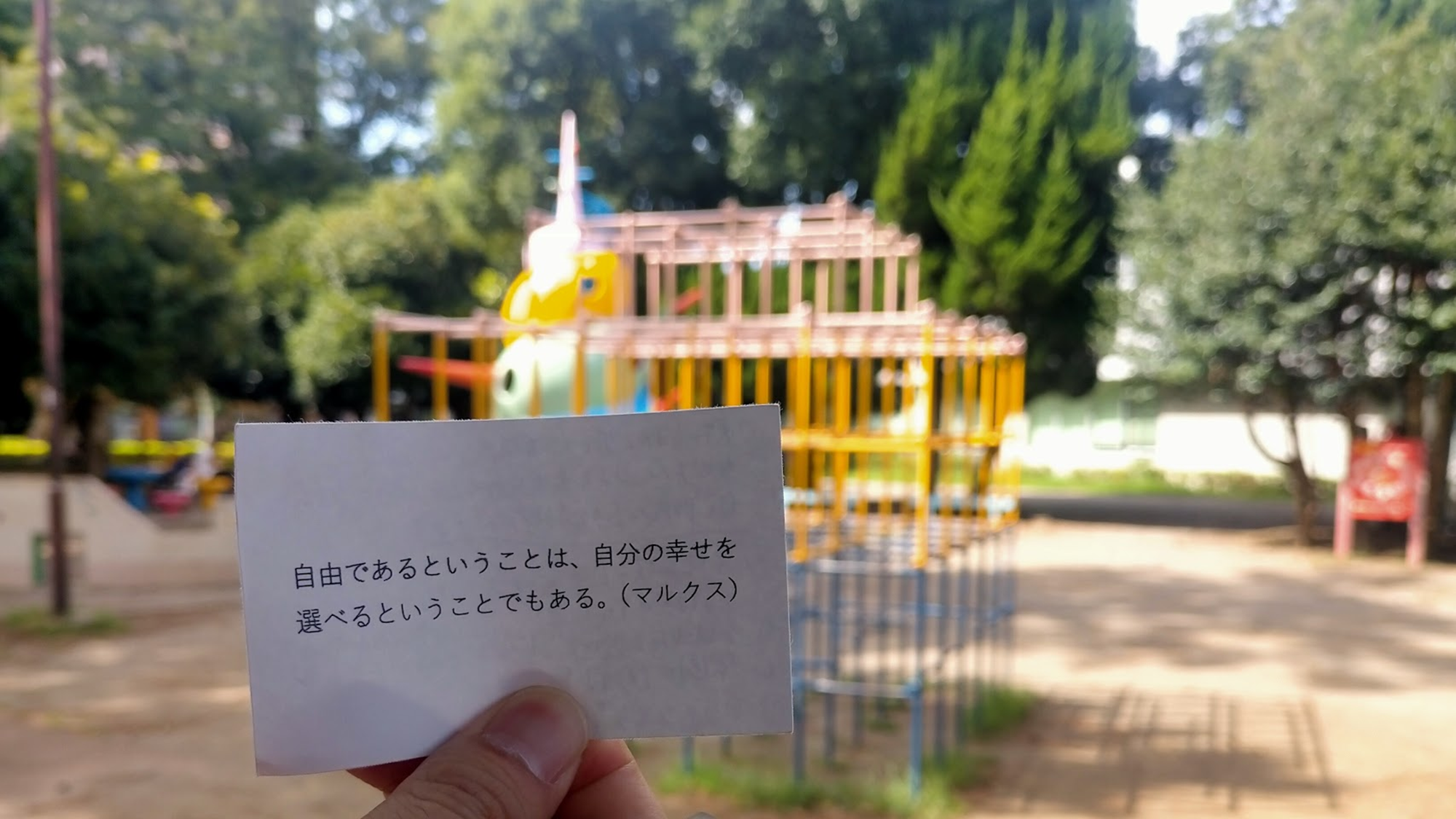Field Study Course for Academic Year 2022
Amenity Map of the Okubo area, Narashino City x History of Space x Philosophy Walk
Field Study Course for Academic Year 2022 Implementation period: September 5-13, 2022 (Phase I)
February 20-28, 2023 (Phase II)
Location: Narashino-shi, Chiba Prefecture, from Keisei-Okubo Station to the Okubo shopping district area
Study objectives:
To conduct an amenity evaluation and spatial history survey of a long-established shopping street (Yoshinaga in charge).
Participants will use the method of a philosophy walk to look at the town from a different perspective, and at the same time, ask each other questions about their reflections and deepen their considerations (Kanemitsu).
-

Inside a grocery store that is also on the 1928 map
-

The interior of a liquor store, also shown on a 1928 map
-

A map from 1945 shown to us at Yakushido
-

Words of a philosopher drawn in a raffle and a photo taken in search of a place related to the words.
-

Words of a philosopher drawn in a raffle and a photo taken in search of a place related to the words.
From the participants' reports (amenity map and spatial history)
The experience of walking through the city from the viewpoint of amenities made me realize the change in the way I look at various things, including their evaluation as amenities. I have a different impression of a thing when I see it as a stand-alone object and when I know its relationship with its surroundings. This is true not only for places and things, but also for our thoughts and worries. Human thinking is variable, and we may see our thoughts and concerns differently through the advice of others, through various experiences, or by taking an objective look at them. Therefore, being aware of other ways of seeing can change many things, and sometimes it can be interesting. I look forward to experiencing many different ways of seeing things in the future.
(1st year)
Walking around the Okubo area for a day from the perspective of amenity/disamenity, and then walking around for another day with the perspective of spatial history, I was able to feel the transition of the town and its historical connections. Listening to the manager of Narashino Sports and the chairman of the Okubo district Trustee, we learned that, historically, Narashino began as a prosperous military town, then became a place that hosted repatriates, and then a student town. From this, we learned that the Okubo area has changed in accordance with each era, and at the same time, we felt that it will continue to change in the future.
(2nd year)
From a participant's report (Philosophy Walk)
During the Philosophy Walk, I was given a card with Voltaire's words, "The reward for a worthy accomplishment is the accomplishment of the accomplishment itself. When you accomplish something, the result is not necessarily good for you. In this case, "result" refers to everything you gain after accomplishing something, such as recognition and knowledge. There may be some damage done to you, or you may not learn anything in the process of accomplishing the task. However, it is an unshakable fact that you have done a good job until the end. Any other result is secondary and uncertain, but the moment you accomplish something, no matter what it is, the fact that you have done it honorably has immutable value. I interpret Voltaire's words in this way.
(Year 2)
The words I drew lots on were Nietzsche's "As the past influences the present, so the future influences the present." It was. As a matter of fact, the moment I drew the lots, I doubted myself if the unpredictable future could ever affect the present. So does the future really influence the present? As others have actually asked me this question, I have wondered this in the back of my mind. So I went back and reconsidered through the history of the town/space. Then the answer came into view. It turned out to be that an invisible entity called the future was influencing the present. In fact, what had been Daiwa Bookstore in the past had changed its form and existed as nomabooks. In other words, what we thought was the present became the past, and what we thought was the future became the present. In this respect, not only the buildings but also the people involved in the area may be unknowingly aware of the existence of the future and of us in the future.
(Year 2)

